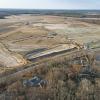Citizens to move forward with appeal of Artesian permit

A state environmental board has allowed citizens to appeal Artesian Water Co.'s permit for a new spray irrigation facility.
A hearing on the merits of the appeal will be held in late summer or early fall, said Dean Holden, chairman of the state Environmental Appeals Board, after the board denied motions to dismiss the appeal brought by Delaware Department of Natural Resources and Environmental Control and Artesian. The board agreed to let attorneys for DNREC, Artesian and citizens group Keep Our Wells Clean work out the parameters for a hearing on the case or possibly come to a settlement.
Attorney Kenneth Kristl, representing more than 100 supporters of Keep Our Wells Clean at the May 22 hearing, plus seven affected homeowners who live near the Artesian site, said he was gratified the board ruled in his clients' favor. "We can continue to press our case forward," he said. "We're very happy about today's results."
Kristl said the discussions with DNREC and Artesian attorneys would involve finding ways to narrow the issues and find out more about the Artesian project. He said the case would be resolved no later than early fall.
Michael Bard, spokesman for Artesian, said the company will continue moving forward with the project. He said Artesian is more than willing to meet with the appellants to discuss the the project.
Arguing for dismissal of the appeal, Deputy Attorney General Kayli Spialter and Artesian attorney R.J. Skaggs said the appellants did not have standing to bring the appeal and that the issues cited were related to the facility's operations permit, not the construction permit. Skaggs said the parties will sit down and talk to clarify the issues and settle on the relevant topics at another hearing. He said a possible settlement would also be discussed.
The case has its roots in 2013, when Artesian received approval from DNREC to operate the Artesian Northern Sussex Regional Water Recharge Facility, built on a 1,700-acre tract at the intersection of Route 16 and Route 30 outside Milton. Artesian had originally planned for the system to serve a nearby development, but it was never built.
Artesian then talked with the city of Rehoboth Beach about spraying the city's treated effluent at the site.
When that also fell through, Allen Harim offered to send its treated effluent to the Artesian site, where it would be used for spray irrigation.
In late 2017, Artesian asked for the permit for the facility to be amended, allowing Artesian to go into business with Allen Harim, with some plan modifications, including converting two proposed 60-million-gallon lagoons into one 90-million-gallon lagoon and to be able to accept up to 2 million gallons of treated effluent per day. Artesian broke ground on the facility May 18.
The plans for the Artesian facility have come under fire for several reasons, with critics citing long-standing problems with wastewater treatment at the Allen Harim plant as well as the proximity of the Artesian fields to fields used by Clean Delaware. Homes near Clean Delaware have experienced high levels of nitrates in their wells; Kristl raised concerns that Artesian's spray process would add to contamination from Clean Delaware effluent, all of it flushing toward the town of Milton.
Kristl said he was not concerned that Artesian has begun construction of the facility, since the risk is on the company if modifications are demanded as part of a settlement or board ruling. He said there are concerns about the design of the facility and that the time to raise questions is now, not after the facility is built.
"There's real concern about contamination in the groundwater, and this has the potential to make it worse," Kristl said. "They [his clients] want to make sure this is a safe operation that does not impair their property."
In her arguments, Spialter said an operations permit hearing - which Allen Harim would need before it could begin pumping effluent to the Artesian fields - would be the proper venue to hear Kristl and the appellants' concerns.
Spialter said the claims raised by Kristl were based on hypotheticals and conjecture, offering no specifics as to injuries caused to his clients other than hypothetical injuries. She said even if the appellants were successful, it would not keep the facility from being built. Kristl replied that operational issues should be worked out before the facility goes online.
Tony Scarpa, one of the appellants in the case, said he was happy with the board's ruling. "Our big concern was a lot of times this board will stand with DNREC," he said. "We're not going to give up this fight. It's too important. There's been too many people who have suffered for too long."


















































